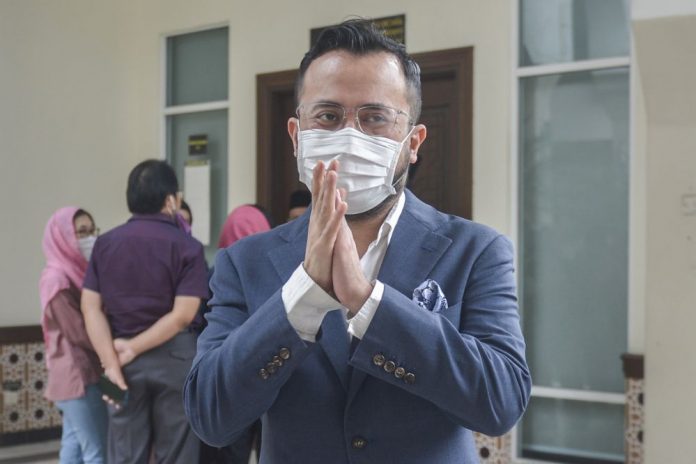.JPG)
SHAH ALAM, Dec 17 — The Shariah court today decided to release and acquit Mohd Ezra Mohd Zaid from a trial over a Bahasa Malaysia book published in 2012 by his company, which means the Shariah proceedings he had faced since his arrest and the book seizures about eight years ago have fully ended.
Last week, the Shariah prosecution applied to the Shariah court for three court orders, namely to partially release Ezra without acquitting him via a discharge without amounting to acquittal (DNAA) order, and for the books to effectively not be returned to his company ZI Publications but to be forfeited and destroyed, and to block Ezra from talking about the case.
Petaling Shariah subordinate court judge Shukran Yusof today rejected the prosecution’s application for a DNAA on Ezra, but instead ordered that he be both discharged and acquitted from the Shariah charge under Section 16(1)(a) of the Syariah Criminal Offences (Selangor) Enactment 1995.
Under the Shariah offence of Section 16(1)(a) that Ezra was charged in 2013, any person who — among other things — publishes any book containing anything contrary to Islamic law commits an offence, with such an offence punishable by a maximum fine of RM3,000 or a maximum two-year jail term or both.
The DNAA sought by the Shariah prosecution would have enabled them to charge Ezra again in the future on the same offence if they wanted to, but the judge today agreed that Ezra should be fully released from the Shariah charge due to final decisions made by the civil courts via the Court of Appeal and Federal Court to quash the Shariah trial.
“Because if here, the court discharges without acquittal, it will become an academic issue, nothing can be done by the prosecution for investigations and so on, because this case is not valid starting from the arrest and the fourth respondent’s (Selangor chief Syarie prosecutor) decision to prosecute were all quashed by the Court of Appeal and any appeal to the Federal Court is no longer allowed.
“So if I continue what was applied for, then it will be sia-sia sahaja (pointless),” he said when agreeing with Ezra’s lawyer’s arguments on why he should be fully released from the Shariah charge.
The judge allowed the second order sought by the Shariah prosecution, which was for the books seized from ZI Publications to be forfeited and destroyed.
“The court orders all copies of the translation of the Allah, Love and Liberty book written by Irshad Manji to be forfeited from the accused (Ezra) or related parties and to be surrendered to Islamic religious enforcers to be destroyed according to Section 16(2) of the Syariah Criminal Offences (Selangor) Enactment 1995,” the judge said.
Under Section 16(2), the court can order any book or document referred to in Section 16(1) to be “forfeited and destroyed” even if no one has been convicted of any offence in relation to such books or documents.
As for the final court order sought by the Shariah prosecution, the judge rejected the application for what would have been effectively a gag order on Ezra or his agent to stop them from talking about the Shariah case in any way.
To justify the gag order application on Ezra, the Shariah prosecution had in its written submission among other things said that it would not be appropriate for him to issue any statement in the media that would prevent the Shariah courts or the Islamic religious authorities from being an independent and exclusive body to carry out judicial matters without “interference” from the civil courts.
The Shariah prosecution had in its written submission also claimed that the Shariah judiciary may be shown to be “second class” in society if Ezra was allowed to speak about the case, and had further argued that reports on court proceedings should only published in law journals and not in social media or other media that can be accessed by the public who would not have professional training to evaluate the fairness of the reports.
Ezra’s lawyer Zulkifli Che Yong had in his written submissions however highlighted the need for press freedom in public interest cases to enable the public to know about their rights and limits in law, and that such a gag order should not be allowed.
In considering the arguments from both sides, the judge said the Shariah prosecution did not produce any evidence to back up their claims and said their arguments amounted to just “assumptions” or predictions of what could happen.
The judge highlighted the constitutional right to freedom of expression under Article 10 of the Federal Constitution as long as no defamation is involved, and said that generally, court proceedings in either the civil courts or Shariah courts are open for the public and reporters to attend, but noted that comments or news reports will have to be based on facts.
The judge also pointed out that there are laws on defamation and contempt of court that could be used if necessary.



